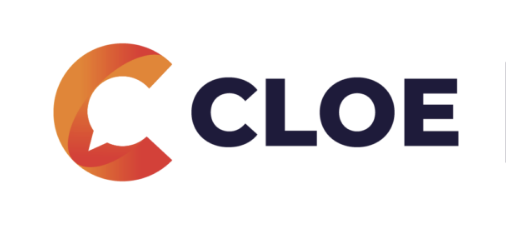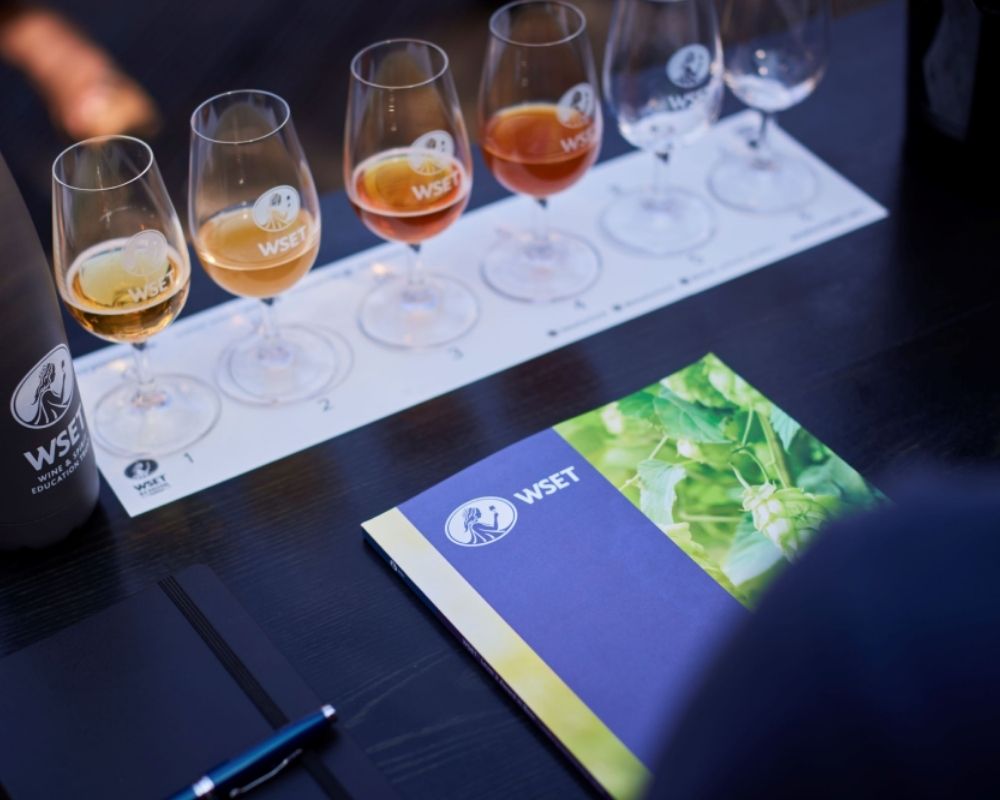The CPF, or Compte Personnel de Formation (Personal Training Account), has become an essential tool for employees and job seekers looking to develop their professional skills. However, behind its image as a facilitator lies a worrying reality for those aiming to obtain internationally recognized, prestigious certifications, such as the WSET qualifications. Since the 2021 reform, access to CPF funding for these programs has been drastically restricted, causing confusion and frustration among candidates.
This situation has created a true paradox: a public system designed to support professional development and lifelong learning has, in some cases, blocked access to high-value international certifications. Professionals and learners are left struggling with frozen funding, altered course titles, and a host of administrative requirements.
In this article, we explore the history of the WSET and CPF, the 2021 reform that disrupted the French training landscape, and the solutions implemented by training providers like Weeno to continue offering high-quality learning pathways despite bureaucratic constraints.
1. The incredible story of WSET on the CPF
Until 2021, wine professionals and enthusiasts could finance their WSET courses through the CPF (Compte Personnel de Formation) thanks to a network of affiliated schools. These programs, covering Levels 1 to 3 in wines, spirits, and Japanese sake, were easily accessible and allowed learners to combine international expertise with public funding.
However, the Caisse des Dépôts determined that these registrations were not compliant. Why? Simply because the WSET, the UK-based awarding body, had not directly completed the registration process with France Compétences. Instead, certain affiliated schools in France handled the registration and offered WSET certifications through the CPF. In other words, training providers acted as intermediaries without the legal authorization to list WSET as a recognized CPF certification.
Despite this issue, a grace period was granted in 2020. Until the end-of-2021 reform, affiliated schools were allowed to keep their WSET offerings active on the CPF, enabling candidates to continue benefiting from public funding, even if regulatory compliance was not fully met. This period served as a final respite before the reform dramatically changed the landscape.
Today, this story highlights how access to prestigious international certifications can be fragile in the face of strict and ever-changing administrative rules set by France Compétences.

2. The 2021 CPF reform and the disappearance of funding
In 2021, due to repeated fraud and aggressive telemarketing by certain training providers, the Caisse des Dépôts and France Compétences decided to reform the CPF (Compte Personnel de Formation). The goal? To strengthen the control and compliance of registered certifications, ensuring legitimate use of public funds and protecting both candidates and the system.
For WSET courses, this reform had an immediate and dramatic effect. Overnight, WSET courses available through the CPF disappeared, leaving candidates completely confused. Affiliated training providers suddenly faced a critical situation: unable to offer public funding for internationally recognized certifications.
This major disruption affected not only candidates but also all schools offering WSET programs in France. The CPF, which until then allowed learners to pursue prestigious courses without significant personal expense, was abruptly restricted, creating confusion and frustration among professionals seeking to advance their training.
Beyond WSET, nearly 70% of the entire CPF offering vanished between December 31, 2020, and January 1, 2021. This situation highlighted a paradox: the CPF, designed to facilitate professional development, in some cases prevented access to the most sought-after international certifications in the wine, spirits, and sake sectors.
3. WSET’s efforts to adapt
In response to the CPF funding blockages, WSET undertook measures to secure the legal recognition of its courses in the Registre Spécifique (RS). The main objective was to register the WSET Level 3 in Wines in France with France Compétences and restore the possibility of CPF funding.
After nine months of waiting between submitting the application and receiving France Compétences’ decision, the first request was rejected. The reason: WSET’s assessment structure does not include an oral jury to discuss candidates’ results. Unlike certain French certifications, WSET exams rely solely on written tests and objective evaluations, in order to comply with the impartiality requirements imposed by OFQUAL, the UK certification oversight body.
Under pressure from French training providers, WSET attempted to adapt by creating a France-specific jury. However, after six months of waiting, this second application was rejected by France Compétences due to an administrative detail: the outsourcing of the jury to affiliated schools, considered non-compliant with the new requirements.
This situation highlights the strict and uncompromising regulatory constraints that an international certificate provider like WSET must adhere to in France. These constraints are challenging for a global certificate provider, which operates under controlled and audited processes in over 50 countries worldwide.

4. Solutions from training providers
Faced with the impossibility of offering WSET courses directly via CPF, training providers had to find alternative ways to allow candidates to continue learning legally and effectively.
Some institutions opted to create parallel courses, often based on their own educational materials and not officially recognized, while still providing equivalence preparation for the WSET exams. These programs allow candidates to prepare independently, but do not deliver an official certification directly through CPF.
Weeno has chosen an innovative and professional approach:
- A partnership with CLOE and PeopleCert LTE English certifications, offering professional language training specifically tailored to wines, spirits, Japanese sakés, and beers.
- Use of official WSET educational materials, ensuring content quality and compliance.
- Possibility to take the WSET exam separately, outside the CPF pathway, to obtain the internationally recognized certification.


Weeno selected this option to meet specific industry needs: enhancing professional English and domain knowledge for all players in the wine, spirits, Japanese saké, and beer sectors. Whether you are a sommelier, wine shop owner, restaurateur, wine tourism professional, producer, or sales agent, you frequently need to communicate in English with international contacts about products in your field.
Focus on our two certifications:
CLOE Certifications – Wine & Spirits or Hospitality & Catering Specialization
CLOE (Oral and Written Language Skills) certifications assess your ability to communicate effectively in English in a professional context. At Weeno, we prepare candidates for the CLOE certification specialized in “Wine & Spirits” or “Hospitality & Catering,” tailored to the vocabulary, situations, and exchanges typical of the sector. This certification, recognized by France Compétences and eligible for CPF, enhances your ability to present wines, conduct tastings, showcase wineries, or interact with international partners. It is aimed at all professionals wishing to improve their job-specific English in a practical context. Certificates indicate your proficiency level on the CEFR scale from A1 to C2.
PeopleCert LTE Certifications – Listening, Reading & Writing
The PeopleCert LTE (LanguageCert Test of English) certification measures your overall English proficiency according to the Common European Framework of Reference (CEFR), from A1 to C2. Internationally recognized, this certification attests to your listening, reading, and writing skills in English. Fully online and flexible, it provides an accurate score reflecting your level. It is ideal for those who want to certify their general or professional English for career advancement or admission to international programs.
5. Enhanced controls and new directives (summer 2025)
Summer 2025 marked a new phase for CPF funding regarding WSET courses, with stricter controls and directives imposed by the Caisse des Dépôts.
Key measures included:
- A formal prohibition on using the WSET name in CPF programs, including references to official manuals or online learning platforms.
- Mandatory revision of course titles to comply with new regulations. This has caused confusion for both candidates and training providers, who had to quickly adapt their materials and communications.
- Official WSET exams must be paid for and taken separately, outside of the CPF pathway.
These measures reflect the authorities’ intent to clarify and secure the use of CPF funds, ensuring that only fully compliant and transparent training programs receive public financing. For candidates and training providers, this requires constant adaptation to maintain educational quality while adhering to regulatory requirements. In practice, these new rules have reduced the number of internationally recognized certifications available via CPF.

6. Current situation
Today, the situation regarding WSET and CPF funding remains unresolved, but solutions exist for candidates eager to continue their professional training:
- Weeno’s approach: Weeno has specialized in professional English training tailored to wines, spirits, Japanese sakés, and beers, combining linguistic training with official WSET materials. This approach enables candidates to effectively prepare for WSET exams even without direct CPF funding.
- Current limitation: CPF does not directly cover WSET exams. Candidates must therefore plan to take the official exam separately while following preparatory courses through CPF-funded programs or other schemes.
- Affordable exam options: Weeno offers competitive rates for WSET exams following a CPF-funded language course:
- €30 for WSET Level 1 exam
- €40 for WSET Level 2 exam
- €100 for WSET Level 3 exam
This method allows learners to continue acquiring internationally recognized skills, obtain professional English certification, and prepare for official WSET qualifications, all while complying with new French regulatory constraints.
7. The current spirit of the CPF and its paradoxes
The Compte Personnel de Formation (CPF) remains a highly valued tool for working professionals, providing funding for skill development. However, the 2021 reform and new regulatory constraints have created several paradoxes:
- Restrictive system: introduction of a minimum co-payment (e.g., €100), regular audits of training providers, and frequent updates to the rules.
- Shrinking offer: many certifications available through CPF lack international recognition or real market value.
- Major controversy: significant public funds are spent financing “homemade” diplomas, while globally recognized certifications like WSET can no longer be listed.
- Impact on employers and professionals: difficulty in identifying relevant qualifications on CVs, leading to potential counter-productivity in professional development.
These paradoxes highlight the dilemma between public funding and training quality, sparking ongoing debates and questions within the professional education sector.

Message for professionals
The controversy surrounding WSET and CPF funding highlights a major dilemma: how can professionals reconcile high-quality training with bureaucratic constraints? On one hand, internationally recognized certifications ensure expertise and credibility in the professional market. On the other hand, CPF reforms have drastically limited access to these programs, favoring courses that may offer less professional value.
For professionals seeking to secure the real value of their learning, relying on trusted solutions is essential. At Weeno, we offer professional language training based on the official WSET manuals and specialized language materials, with comprehensive pedagogical support, and the option to take the official WSET exam independently of CPF funding.
➡️ Discover our professional English courses for wine, spirits, sake, and beer with CLOE or LTE, and ensure your skills are recognized internationally.






